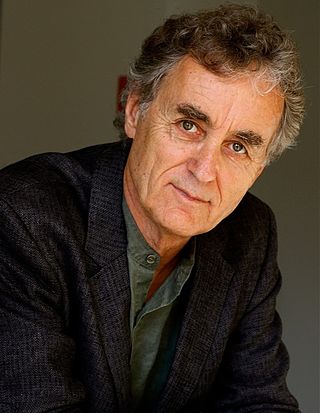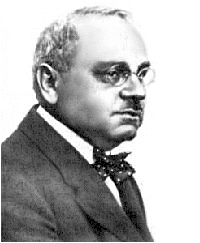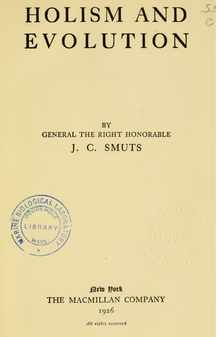Process philosophy, also ontology of becoming, or processism, is an approach in philosophy that identifies processes, changes, or shifting relationships as the only real experience of everyday living. In opposition to the classical view of change as illusory or accidental, process philosophy posits transient occasions of change or becoming as the only fundamental things of the ordinary everyday real world.
The concept of an archetype appears in areas relating to behavior, historical psychology, and literary analysis.

Fritjof Capra is an Austrian-born American author, physicist, systems theorist and deep ecologist. In 1995, he became a founding director of the Center for Ecoliteracy in Berkeley, California. He is on the faculty of Schumacher College.

Alfred Adler was an Austrian medical doctor, psychotherapist, and founder of the school of individual psychology. His emphasis on the importance of feelings of belonging, relationships within the family, and birth order set him apart from Freud and others in their common circle. He proposed that contributing to others was how the individual feels a sense of worth and belonging in the family and society. His earlier work focused on inferiority, coining the term inferiority complex, an isolating element which he argued plays a key role in personality development. Alfred Adler considered a human being as an individual whole, and therefore he called his school of psychology "Individual Psychology".
Physical causality is a physical relationship between causes and effects. It is considered to be fundamental to all natural sciences and behavioural sciences, especially physics. Causality is also a topic studied from the perspectives of philosophy, statistics and logic. Causality means that an effect can not occur from a cause that is not in the back (past) light cone of that event. Similarly, a cause can not have an effect outside its front (future) light cone.

Field Marshal Jan Christian Smuts, was a South African statesman, military leader and philosopher. In addition to holding various military and cabinet posts, he served as prime minister of the Union of South Africa from 1919 to 1924 and 1939 to 1948.
Holism is the interdisciplinary idea that systems possess properties as wholes apart from the properties of their component parts. The aphorism "The whole is greater than the sum of its parts", typically attributed to Aristotle, is often given as a glib summary of this proposal. The concept of holism can inform the methodology for a broad array of scientific fields and lifestyle practices. When applications of holism are said to reveal properties of a whole system beyond those of its parts, these qualities are referred to as emergent properties of that system. Holism in all contexts is often placed in opposition to reductionism, a dominant notion in the philosophy of science that systems containing parts contain no unique properties beyond those parts. Proponents of holism consider the search for emergent properties within systems to be demonstrative of their perspective.
Organicism is the philosophical position that states that the universe and its various parts ought to be considered alive and naturally ordered, much like a living organism. Vital to the position is the idea that organicistic elements are not dormant "things" per se but rather dynamic components in a comprehensive system that is, as a whole, everchanging. Organicism is related to but remains distinct from holism insofar as it prefigures holism; while the latter concept is applied more broadly to universal part-whole interconnections such as in anthropology and sociology, the former is traditionally applied only in philosophy and biology. Furthermore, organicism is incongruous with reductionism because of organicism's consideration of "both bottom-up and top-down causation." Regarded as a fundamental tenet in natural philosophy, organicism has remained a vital current in modern thought, alongside both reductionism and mechanism, that has guided scientific inquiry since the early 17th century.
Holism in science, holistic science, or methodological holism is an approach to research that emphasizes the study of complex systems. Systems are approached as coherent wholes whose component parts are best understood in context and in relation to both each other and to the whole. Holism typically stands in contrast with reductionism, which describes systems by dividing them into smaller components in order to understand them through their elemental properties.
Emergent evolution is the hypothesis that, in the course of evolution, some entirely new properties, such as mind and consciousness, appear at certain critical points, usually because of an unpredictable rearrangement of the already existing entities. The term was originated by the psychologist C. Lloyd Morgan in 1922 in his Gifford Lectures at St. Andrews, which would later be published as the 1923 book Emergent Evolution.

Sex, Ecology, Spirituality: The Spirit of Evolution is a 1995 book by integral philosopher Ken Wilber. Wilber intended it to be the first volume of a series called The Kosmos Trilogy, but subsequent volumes were never produced. The German edition of Sex, Ecology, Spirituality was entitled Eros, Kosmos, Logos: Eine Jahrtausend-Vision. The book has been both highly acclaimed by some authors and harshly criticized by others.

The term Cartesian linguistics was coined by Noam Chomsky in his book Cartesian Linguistics: A Chapter in the History of Rationalist Thought (1966). The adjective "Cartesian" pertains to René Descartes, a prominent 17th-century philosopher. As well as Descartes, Chomsky surveys other examples of rationalist thought in 17th-century linguistics, in particular the Port-Royal Grammar (1660), which foreshadows some of his own ideas concerning universal grammar.
Holistic education is a movement in education that seeks to engage all aspects of the learner, including mind, body, and spirit. Its philosophy, which is also identified as holistic learning theory, is based on the premise that each person finds identity, meaning, and purpose in life through connections to their local community, to the natural world, and to humanitarian values such as compassion and peace.
Antireductionism is the position in science and metaphysics that stands in contrast to reductionism (anti-holism) by advocating that not all properties of a system can be explained in terms of its constituent parts and their interactions.
Evarts Greene Loomis (1910–2003) was an internationally known physician, surgeon, author, lecturer, and visionary who is regarded by some as "the father of holistic medicine," Loomis preferred to be called Evarts rather than "doctor".
A glossary of terms relating to systems theory.
The following outline is provided as an overview of and topical guide to metaphysics:
Rolf Sattler FLS FRSC is a Canadian plant morphologist, biologist, philosopher, and educator. He is considered one of the most significant contributors to the field of plant morphology and "one of the foremost plant morphologists in the world." His contributions are not only empirical but involved also a revision of the most fundamental concepts, theories, and philosophical assumptions. He published the award-winning Organogenesis of Flowers (1973) and nearly a hundred scientific papers, mainly on plant morphology. As well he has contributed to many national and international symposia and also organized and chaired symposia at international congresses, edited the proceedings of two of them and published them as books.
This article considers the history of zoology since the theory of evolution by natural selection proposed by Charles Darwin in 1859.

Philosophy of ecology is a concept under the philosophy of science, which is a subfield of philosophy. Its main concerns centre on the practice and application of ecology, its moral issues, and the intersectionality between the position of humans and other entities. This topic also overlaps with metaphysics, ontology, and epistemology, for example, as it attempts to answer metaphysical, epistemic and moral issues surrounding environmental ethics and public policy.








